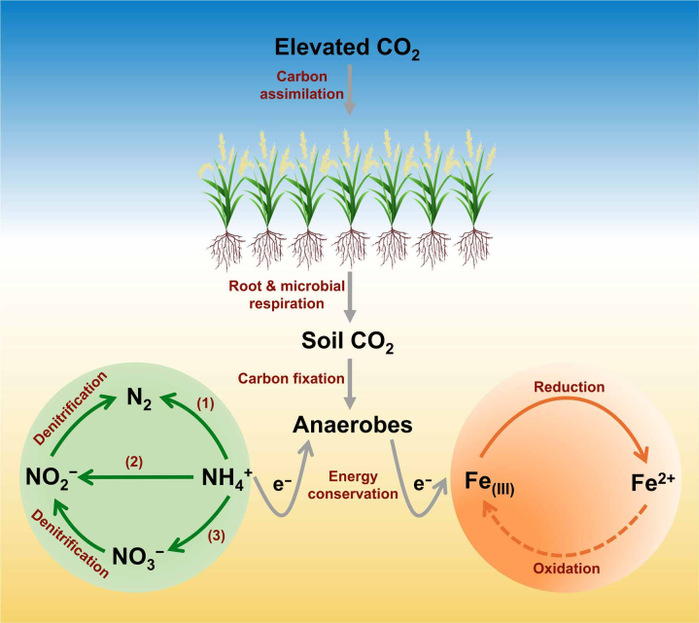Since the advent of the Industrial Revolution, the global climate has undergone dramatic changes as human activities have continued to stimulate the consumption of fossil fuels, accelerate the pace of deforestation and boost the demand for synthetic ammonia, thereby contributing to the constant increase in greenhouse gas emissions and changes in the chemical composition of the atmosphere. On the one hand, global climate change has caused glaciers to melt, sea levels to rise and extreme weather to occur more frequently, thus posing a severe threat to the ecosystems on which human life depends; on the other hand, climate change may profoundly alter the structure and function of ecosystems, which will in turn produce further effects on climate change.
Agro-ecosystems, particularly rice ecosystems, support the staple supply for virtually half of the world's population. In China, approximately two thirds of the population subsists on rice ecosystems for its staple food. In order to maintain the productivity of agro-ecosystems, it is indispensable that an enormous amount of nitrogen should be input, primarily via the use of ammonium-based fertilizers, but the fate of this nitrogen under elevated atmospheric carbon dioxide (CO2) is not well understood. To address this problem, it is essential that researchers should gain an insightful understanding of the conversion of ammonium-based fertilizers in paddy soils and their responses to climate change.

The research team led by Prof. CHENG Lei from the Zhejiang University College of Life Sciences has engaged in relevant research in ammonium-nitrogen in paddy soils in climate-change scenarios. Their research findings are published in a research article entitled "Large losses of ammonium-nitrogen from a rice ecosystem under elevated CO2" in the journal of Science Advances.
In this work, researchers have taken advantage of a 15-year free-air CO2 enrichment study to investigate the influence of elevated CO2 on the transformation of ammonium-nitrogen in a rice ecosystem in which ammonium is usually assumed to be stable under anaerobic conditions. They demonstrate that elevated CO2 causes substantial losses of ammonium-nitrogen that result from anaerobic oxidation of ammonium coupled to reduction of iron. In their study, they identify a new autotrophic member of the bacterial order Burkholderiales that may use soil CO2 as a carbon source to couple anaerobic ammonium oxidation and iron reduction.
These findings offer insight into the coupled cycles of nitrogen and iron in terrestrial ecosystems and raise questions about the loss of ammonium-nitrogen from arable soils under future climate-change scenarios.






